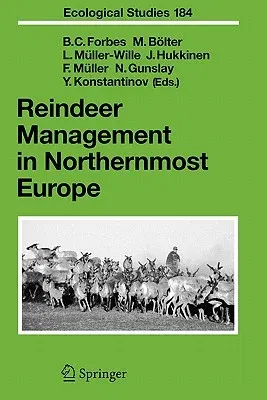The findings presented in this volume represent a concerted effort to
develop a more inclusive form of reindeer management for northernmost
Europe. Our guiding principle has been to foster a new paradigm of
participatory research. We wish to move beyond the historical reliance
on western approaches to basic and applied science. These have been
concerned prim- ily with interactions between herded animals and the
various components of their biophysical environment, e. g., plants,
insects, predators, climate, and others. In our view, sociocultural and
economic drivers, along with herders' experience-based knowledge, gain
equal currency in the effort to understand how management may mitigate
against the negative aspects of the challenges modern herding faces,
while also exploring concepts of sustainability from different
perspectives (see also Jernsletten and Klokov 2002; Kankaanpää et al.
2002; Ulvevadet and Klokov 2004). This broadening of the pool of
disciplines and local, national, and int- national stakeholders in
policy-relevant research invariably complicates v- tually all aspects of
the research process. Multidisciplinary or, in our sense,
transdisciplinary approaches also require extraordinary effort from all
p- ticipants if they are to succeed. As such, those approaches should
not be undertaken lightly, nor without personnel who possess appropriate
expe- ence in cooperating with those of different disciplines and,
preferably, also with relevant practitioners and public social and
administrative institutions. In such settings the potential for
misunderstandings is quite high.

